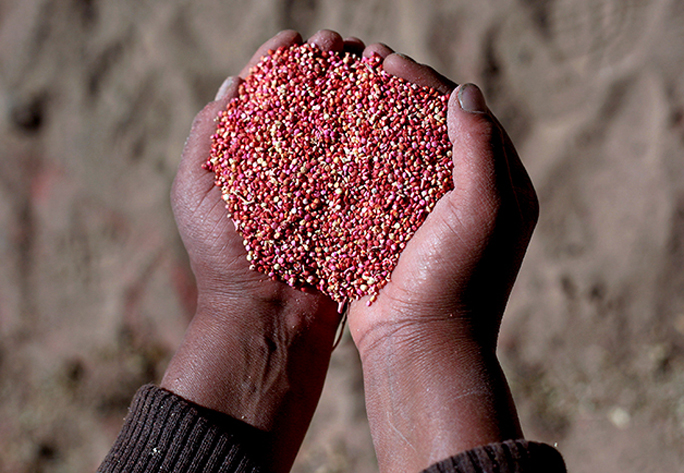Photo Getty Images / GQ
If you are a diet-conscious person in 2015—the kind of person who's maybe trying to forgo delicious white bread in favor of supposedly better-for-you alternatives—you've probably heard the phrase "ancient grains." They are promoted as the fast track to weight loss and stable blood sugar, and they are everywhere—from Cheerios to your local farm-to-table yuppie brunch spot. But no one, from nutritionists to historians, can agree on what constitutes an ancient grain. And in any case, as with most things in life, just because it's old doesn't make it good.
The vast array of grains marketed as ancient—from quinoa to millet to spelt—are, yes, old. Maybe 3,000 years. Maybe 8,000. Who knows? (Also: Who cares?) "I think the term ancient grains may have originated as a marketing idea more than anything else," says Chris Kilham, a medicinal researcher and ethnobotany professor at UMass Amherst.
The more important point is that these old-ass grains haven't been hybridized and processed beyond recognition, to make them more suitable for shipping and storage. They're closer to the wild (kinda like heirloom tomatoes), and that old-schoolness is, Kilham says, what helps them "retain nutrition." It's the difference between corn loaded with GMOs and corn from your favorite roadside farmer's market.
"For many people, adding whole grains to their diet is a great big amazing health change for real," Kilham says. "Their digestion works better, they have more sustained energy, they think more clearly because their blood sugar is more stable."
So then. Whole grains are good. Refined grains, not so good. Ancient grains, sort of just food-industry marketing jargon—but, yes, if the unrefined whole grains in your hand happen to be labeled ancient (we're looking at you, teff!), then feel free to pat yourself on the back.


